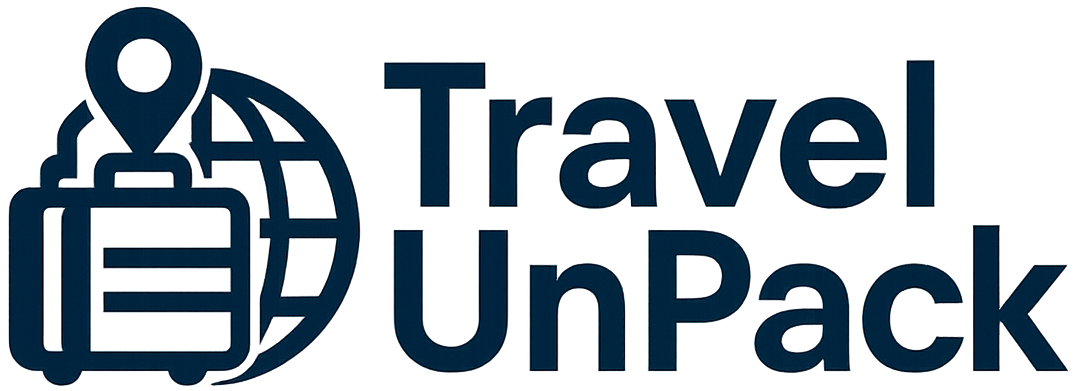The job market is constantly evolving and with it comes new opportunities and demands. One area that is gaining prominence is forklift operation, which is essential for various industrial and logistics sectors. In this article, we'll explore everything you need to know about forklift operator courses, including free options, to help you start or advance your career in this promising area.
In addition, we will answer the most frequently asked questions on the subject, ensuring that you have all the information you need to make informed decisions.
What is a forklift operator course?
A forklift operator course is a training program that aims to enable individuals to operate forklifts safely and efficiently. These courses are designed to teach the fundamentals of forklift operation, including load handling, workplace safety, basic equipment maintenance and relevant regulations. The course usually combines theory and practice, providing students with a comprehensive understanding of the concepts and skills needed to operate forklifts in the workplace.
Forklift operator courses are offered by various institutions, including technical schools, vocational training centers and companies specializing in occupational safety. The duration of the course can vary depending on the institution and the level of certification desired, but generally ranges from a few hours to a few days. In addition, many courses offer market-recognized certification, which can be a great differentiator for those who are looking for a new position or want to stand out in today's workplace.
Operating forklifts is a valuable skill in many industries, including warehouses, factories, distribution centers and construction. Therefore, completing a forklift operator course can open doors to a variety of job opportunities. In addition, being certified as a forklift operator can increase safety in the workplace, as trained operators are better able to avoid accidents and follow safety protocols.
Why take a forklift operator course?
Taking a forklift operator course offers several benefits for both beginners and experienced professionals. Firstly, certification in forklift operation is often a mandatory requirement for working in certain sectors. Employers value candidates who have formal training, as this demonstrates a commitment to safety and competence in handling heavy equipment.
What's more, having a forklift operator certificate can significantly increase your chances of employment. Industries such as logistics, manufacturing and construction are always on the lookout for skilled operators. Therefore, obtaining this certification can open doors to a variety of career opportunities and help ensure job stability in an increasingly competitive market.
Another important reason for taking a forklift operator course is safety. Operating a forklift requires technical knowledge and skill to ensure the safety of the operator and the people around them. Training courses teach essential safety practices, helping to prevent accidents in the workplace. This not only protects the operator, but also reduces the risk of damage to goods and installations.
Finally, investing in a forklift operator course can lead to an increase in salary. Qualified and certified professionals tend to earn more than those who are not certified. So making this investment in your training can bring significant financial returns in the long term.
How do you choose the right forklift operator course?
Choosing the right forklift operator course is a crucial step in ensuring that you get the best possible training. The first aspect to consider is the reputation of the institution offering the course. Look for recognized and well-rated training centers that are known for offering quality programs. Reading reviews and asking industry colleagues for recommendations can be a good way to start.
Another important factor to consider is the syllabus of the course. Make sure the course covers all the essential aspects of forklift operation, including safety, maintenance and regulations. Some courses may also offer specific training for different types of forklifts, such as electric or combustion forklifts. Choosing a course that offers comprehensive and specialized training can set you apart in the job market.
Also check that the course offers a combination of theoretical and practical learning. Practical forklift handling is crucial to developing the skills needed to operate the equipment efficiently and safely. Courses that include a significant practical load tend to better prepare students for the day-to-day demands of the job.
Finally, consider the cost and location of the course. Although investing in your education is important, it is essential to find a course that fits into your budget. Also, consider the location of the training center and the logistics required to attend classes. Online or hybrid courses can be a good option for those with time or mobility constraints.

Free forklift operator course options
Although many forklift operator courses are paid for, there are free options available that can be an excellent choice for those on a tight budget. Some government institutions and NGOs offer free courses as part of training and job market insertion programs. These courses are often funded by public policies to encourage employment and professional qualification.
One of the ways to find free courses is through federal government qualification programs, such as the National Program for Access to Technical Education and Employment (Pronatec). Pronatec offers various technical and vocational courses, including forklift operations, in partnership with educational institutions across the country. Check if there are any vacancies available in your region by visiting the official Pronatec website.
Another option is to look for online platforms that offer free or affordable courses with certificates. Although practice is essential, many online courses offer a solid theoretical basis that can be supplemented later with practical training. Some popular platforms for finding online courses include Coursera, edX and Udemy. However, make sure that the course you choose is recognized by the industry and offers a certificate of completion.
In addition, large companies that use forklift trucks in their operations may offer free training for new employees. If you already work for such a company or want to work for one, it's worth checking whether they provide in-house training programs. This can be an excellent opportunity to learn and secure a job at the same time.
Certification and regulations for forklift operators
Certification is an essential part of the process of becoming a forklift operator. In Brazil, the operation of forklifts is regulated by the Ministry of Labor, which sets standards to ensure the safe and efficient use of this equipment. Regulatory Standard NR-11, for example, deals with the transportation, movement, storage and handling of materials, including the use of forklifts.
To obtain certification, the operator must complete a course recognized by a competent body, which complies with the Ministry of Labour's safety and operating regulations. Upon completion of the course, a certificate is issued proving that the operator has the necessary skills and knowledge to operate forklifts safely.
In addition to the basic course, operators can opt for additional training and specializations, depending on the type of forklift or sector in which they intend to work. For example, operators who work in specific environments, such as ports or airports, may need additional certifications that meet the requirements of these locations.
It is important to remember that certification must be renewed periodically. The validity period of certification can vary, but is generally two years. During this period, the operator must keep up to date with new safety practices and regulations, attending refresher courses as necessary.
The job market for forklift operators
The job market for forklift operators is very dynamic and offers a variety of opportunities in different sectors. With the growth of e-commerce and the expansion of logistics and industrial centers, the demand for qualified operators continues to increase. Logistics companies, warehouses, manufacturing and construction industries are some of the main employers of these professionals.
In addition, globalization and the need for efficient infrastructure have generated a growing demand for forklift operators on large-scale projects. Skilled professionals are essential for ensuring the continuous flow of goods and materials, which is crucial to the operational success of many businesses.
Pay for forklift operators can vary depending on location, experience and sector. However, with the right certification and experience, operators can expect competitive pay and additional benefits. Many companies also offer advancement opportunities, allowing operators to start their careers in entry-level positions and advance to supervisory or logistics management positions.
In short, a career as a forklift operator not only offers stability, but also the chance for professional growth. With the right training and certification, you can position yourself as an attractive candidate in an expanding job market.
Conclusion
Becoming a qualified forklift operator can be the first step towards a successful career in many sectors of the economy. With the increasing demand for trained and certified professionals, investing in a forklift operator course, whether paid or free, can bring significant benefits to both your career and workplace safety. We hope this article has provided you with valuable information and helped you better understand the options available to you. Now it's up to you to take the next step and train yourself to take advantage of the opportunities the market has to offer.
FAQ
1. What is required to enroll in a forklift operator course?
- Generally, you need to be at least 18 years old and have completed elementary school. Some institutions may require a medical examination.
2. How long does a forklift operator course last?
- The duration varies, but a full course usually takes between 16 and 40 hours.
3. Can I take a forklift operator course online?
- Yes, many courses offer the theoretical part online, but the practical part must be in person.
4. Is the forklift operator's certificate valid?
- Yes, the certificate is usually valid for two years and must be renewed.
5. Is it possible to take a free course?
- Yes, programs like Pronatec offer free courses. Check availability in your region.
6. What is the average salary for a forklift operator?
- The average salary varies, but can be around R$ 1,500 to R$ 2,500 per month, depending on the region and company.
7. What are the main risks of operating forklift trucks?
- Risks include the forklift tipping over, collisions and falling loads, making it crucial to follow safety practices.
8. Can I work for any company with a forklift operator's certificate?
- Yes, as long as the certificate is recognized and valid.
9. What happens if my certificate expires?
- You will need to take a refresher course to renew your certification.
10. Do electric and combustion forklifts require different certifications?
- Some courses offer specializations by type of forklift, but the basis of the certification is similar.
11. Where can I find vacancies for forklift operators?
- Job sites, recruitment agencies and LinkedIn are good places to look for vacancies.
12. What additional skills can be advantageous for forklift operators?
- Skills in logistics, basic equipment maintenance and knowledge of safety regulations are advantageous.
13. Are forklift operator courses internationally recognized?
- It can vary, but some certifications are recognized in other countries. Check local regulations.
14. What should I do if I've never operated a forklift before?
- Sign up for a course that offers plenty of practice to gain experience.
15. Do companies offer training for forklift operators?
- Yes, some companies offer in-house training for new operators.



